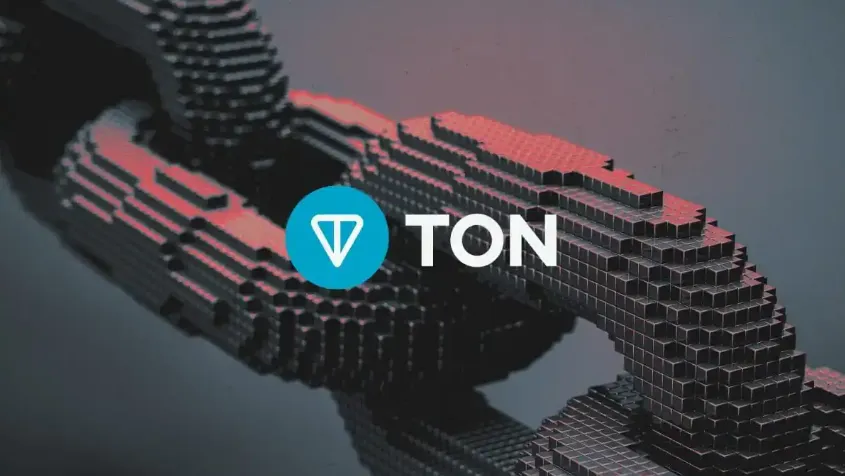How TON Blockchain enhances peer-to-peer (P2P) marketplaces
Introduction
The growing digital economy has paved the way for new forms of online interactions where users seek greater auTONomy and reduced dependence on traditional intermediaries. One notable development in this realm is The Open Network (often referred to as TON), a Blockchain-based solution designed to streamline and secure various types of transactions. As more consumers look for efficient, user-driven marketplaces, understanding how this technology fits into the peer-to-peer (P2P) model becomes increasingly important.
Overview of peer-to-peer (P2P) marketplaces and their growing popularity
Traditional commerce is evolving rapidly, with individuals increasingly preferring direct exchanges of goods and services. This shift has led to the rise of Decentralized peer-to-peer platforms, which prioritize direct user interaction without the need for third-party oversight. As trust becomes a critical element, many P2P marketplaces introduce reputation scores, escrow systems, and user feedback mechanisms to foster reliable and transparent transactions.

How TON Blockchain enables secure and Decentralized P2P trading
The TON Blockchain in P2P marketplaces stands out for its capacity to balance scalability with robust security protocols. It employs a sharding mechanism that distributes transaction loads across multiple chains, ensuring faster processing speeds. This architecture supports seamless trading between parties, making it particularly suitable for time-sensitive P2P exchanges while maintaining high standards of data protection and transactional integrity.
The role of TON in P2P transactions
Beyond simply facilitating trades, TON serves as the backbone for enhanced auTONomy in user-driven marketplaces. By leveraging the Benefits of Blockchain for P2P trading, participants can rely on cryptographic proofs instead of central authorities, thus minimizing the risk of fraud. Additionally, the Blockchain’s consensus algorithms help maintain fairness and security, ensuring that no single node can manipulate the transaction ledger.
Advantages of TON, including transparency, speed, and cost-efficiency
When it comes to ease of use and reliability, TON’s architecture places an emphasis on Security and transparency in P2P transactions with TON. Thanks to high throughput and low latency, users can complete trades quickly, even during peak usage periods. Moreover, the system’s native tokens support microtransactions, allowing buyers and sellers to transact at a fraction of the cost compared to traditional financial services.
How TON reduces reliance on intermediaries through decentralization
One of the key features of the network’s Decentralized design is its emphasis on Smart contracts for trustless trading. These self-executing protocols carry out transactions only when all predefined conditions are met, eliminating the need for intermediaries such as brokers or escrow services. As a result, the process becomes smoother and more cost-effective, paving the way for inclusive global marketplaces.
Security and smart contracts in P2P marketplaces
Enhanced security is a cornersTONe of the network’s architecture, reflected in its battle-tested consensus model and cryptographic frameworks. Another critical benefit is TON’s impact on reducing transaction fees in P2P systems, achieved by optimizing resource usage and eliminating multiple layers of middlemen. Coupled with well-structured smart contracts, these features significantly improve user confidence in P2P marketplaces.
How TON smart contracts ensure trustless and automated transactions
Smart contracts on the network operate as independent, self-verifying code, which helps reduce manual oversight. They verify contract conditions in real time, thus automating payments and product or service delivery once both parties have fulfilled their obligations. These automated operations facilitate smooth exchanges and effectively safeguard user interests, fostering a new standard of trust in Decentralized commerce.
Security measures TON provides to protect users’ funds and data
In addition to automated contract execution, the network employs advanced cryptographic techniques to store user funds safely and maintain data integrity. Nodes regularly validate each transaction while Decentralized governance mechanisms minimize single points of failure. By maintaining this secure environment, the ecosystem offers an attractive alternative for both seasoned and new participants in P2P markets.
Real-world applications
From freelance services to secondhand marketplaces, various platforms are integrating TON’s Blockchain technology to enable direct, user-driven interactions. In these contexts, escrow-like functionalities are built into the Blockchain, removing the need for external oversight. The efficiency gains translate into tangible benefits for small businesses, individual traders, and emerging entrepreneurs looking to expand globally.

Examples of TON-powered P2P platforms and their use cases
Several specialized services highlight Real-world examples of P2P platforms on TON, showcasing how the network’s smart contract capabilities are applied in real trading scenarios. For instance, digital asset marketplaces allow secure exchanges of tokens and collectibles, while regional barter systems utilize the Blockchain to validate user authenticity. These examples underscore the versatility of the network’s infrastructure in diverse commercial activities.
Conclusion
The introduction of a scalable and secure Blockchain framework represents a pivotal moment for online trading models. By removing barriers traditionally posed by centralized entities, this technology amplifies the reach of P2P services. Its accessible features, cost advantages, and robust security measures all point to an optimistic future for Blockchain-enabled transactions.
How TON Is revolutionizing P2P marketplaces and its potential for future growth
Looking ahead, experts predict that Decentralized systems will continue to reshape global commerce. The Future of P2P marketplaces with TON hinges on its ability to adapt, scale, and remain user-focused. As more industries discover the flexibility and security offered by this Blockchain, TON could become the standard for peer-driven marketplaces, fostering innovation and inclusivity across diverse economic sectors.